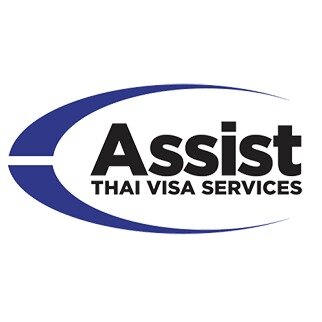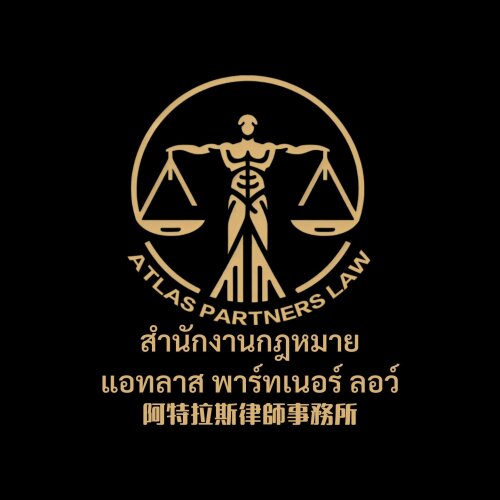About Immigration Law in Chiang Mai, Thailand
Chiang Mai, a culturally rich city in northern Thailand, is a popular destination for tourists and expatriates alike. The immigration process in Chiang Mai reflects Thailand's national policies, which are designed to regulate the entry, stay, and residency of foreigners. The local immigration office is part of the national immigration bureau, which oversees visa applications, extensions, and reentry permits. Understanding the intricacies of immigration law in Chiang Mai is crucial for anyone looking to stay for an extended period, work, retire, or start a business in this city.
Why You May Need a Lawyer
There are various scenarios where engaging a lawyer for immigration issues could be beneficial:
- **Visa Applications:** Navigating the different visa options (tourist, business, retirement) can be complex. A lawyer can assist in choosing the right one and help with documentation.
- **Visa Extensions and Renewals:** Lawyers can facilitate negotiations and clerical tasks related to extending or renewing visas.
- **Residence Permits:** Obtaining a long-term residency can be intricate and may require legal assistance to ensure compliance with all requirements.
- **Legal Residency for Families:** For those immigrating with family, legal advice can help secure proper visas for spouses or dependents.
- **Work Permits and Business Visas:** Legal guidance may be required for those seeking employment or starting a business in Chiang Mai to navigate bureaucratic requirements and obtain necessary permits.
Local Laws Overview
Immigration law in Chiang Mai, as with the rest of Thailand, is predominantly governed by the Immigration Act. Several key aspects include:
- **Entry and Stay Regulations:** Foreigners must enter with the correct visa and follow the terms, such as length of stay and activities allowed under that visa.
- **90-Day Reporting:** Long-term residents must report their residential address every 90 days.
- **Change of Status:** Foreigners in Thailand must have authorization to switch between different visa categories.
- **Reentry Permits:** A reentry permit is required for visa holders wishing to travel outside Thailand without canceling their current visa.
Frequently Asked Questions
What types of visas are available for Chiang Mai?
Visas include tourist, non-immigrant (business, education, retirement, marriage), and business visas, among others.
How long can I stay on a tourist visa?
A tourist visa usually allows stays of up to 60 days, with possible extensions of 30 days within Thailand.
What is a non-immigrant visa?
Non-immigrant visas are for specific purposes like business, education, and family reunion, usually allowing longer stays.
Do I need a work permit to work in Chiang Mai?
Yes, foreigners need a work permit to legally work in Chiang Mai and elsewhere in Thailand.
How do I extend my stay beyond the initial visa expiration?
Visa extensions can be applied for at the local Chiang Mai immigration office, usually requiring proof of purpose and financial means.
Is it possible to apply for residence in Chiang Mai?
Permanent residency is possible but involves meeting specific criteria, including continuous stay requirements and other formalities.
Can family members accompany me to Chiang Mai?
Child and spouse visas are available, allowing family members to stay under dependent status.
What are the penalties for overstaying a visa?
Overstaying can result in fines, detention, or even deportation from Thailand; legal counsel is recommended in such cases.
Are there limits to visa exemptions for tourists?
Tourists from certain countries receive visa exemptions but must adhere to specific stay lengths and entry limits per year.
What is required to secure a retirement visa in Chiang Mai?
Applicants need to be over 50, meet financial requirements, and hold a non-immigrant visa initially before applying for a retirement visa.
Additional Resources
For additional support, consider reaching out to:
- **Chiang Mai Immigration Office:** Offers local processing of visa applications and extensions.
- **Thai Ministry of Foreign Affairs:** Provides guidelines and updates on immigration policies.
- **Expat Community Groups:** Many expat-led groups offer shared experiences and informal advice concerning living in Chiang Mai.
Next Steps
If you require legal assistance regarding immigration in Chiang Mai:
- **Consult a Local Lawyer:** Seek a lawyer specializing in Thai immigration law for personalized legal aid.
- **Visit the Immigration Office:** For direct inquiries regarding applications or requirements, a visit to the local office can be a practical step.
- **Gather Documentation:** Ensure all relevant documents and records are prepared and up-to-date to support your case.
Lawzana helps you find the best lawyers and law firms in Chiang Mai through a curated and pre-screened list of qualified legal professionals. Our platform offers rankings and detailed profiles of attorneys and law firms, allowing you to compare based on practice areas, including Immigration, experience, and client feedback.
Each profile includes a description of the firm's areas of practice, client reviews, team members and partners, year of establishment, spoken languages, office locations, contact information, social media presence, and any published articles or resources. Most firms on our platform speak English and are experienced in both local and international legal matters.
Get a quote from top-rated law firms in Chiang Mai, Thailand — quickly, securely, and without unnecessary hassle.
Disclaimer:
The information provided on this page is for general informational purposes only and does not constitute legal advice. While we strive to ensure the accuracy and relevance of the content, legal information may change over time, and interpretations of the law can vary. You should always consult with a qualified legal professional for advice specific to your situation.
We disclaim all liability for actions taken or not taken based on the content of this page. If you believe any information is incorrect or outdated, please contact us, and we will review and update it where appropriate.















